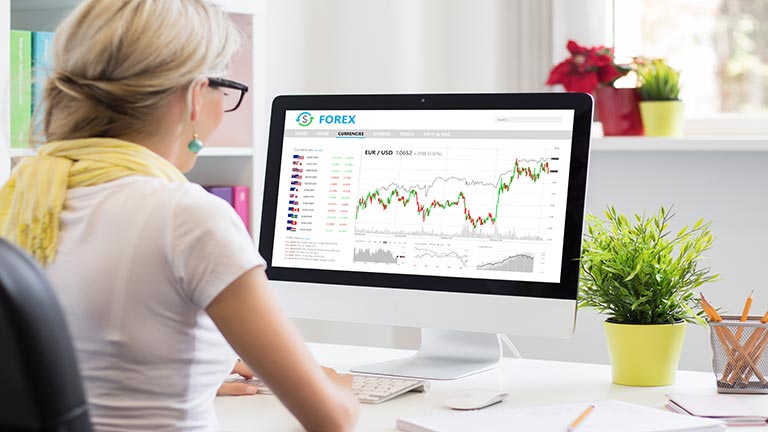Strong Growth for the Australian Economy and Stock Market in 2024

By Dale Gillham
Welcome back, everyone; I hope you had a good break and looking forward to a big year. After three years of pandemics, wars, and unpredictable markets, it’s exciting to be at the start of a new year full of opportunities in the stock market. That said, 2024 may still have some challenges, including lingering inflation. So, let’s review the latest inflation data to gauge what’s in store for the Australian economy in the first quarter of 2024.
How will the Australian economy unfold in 2024?
Last Wednesday, Federal Treasurer Jim Chalmers announced that the inflation rate had fallen from 4.9 per cent in October to 4.3 per cent in November. While this is a notable difference, it doesn’t mean that the price of goods and services will fall; it just means that they’re not rising by as much as the previous month.
This is welcome news, especially for mortgage holders who are likely to see light at the end of the tunnel with the relentless interest rate hikes. That said, the figures show no reprieve for those renting, given that there was an increase of 8 per cent to the cost of rent in the monthly CPI data for November.
As inflation cools and the probability of further rate rises diminishes with talk of rate cuts increasing, now is a perfect time to discuss what we can expect from the Australian stock market this year.
Easing inflation is often viewed positively by the stock market because controlled inflation can indicate a growing and healthy economy. We want inflation as this increases investor confidence, but we don’t want it to be too high. As confidence increases, money starts to flow from fixed-income securities to the stock market, which is why I believe we will see a sustained rise in the market over the next year as the big end of town increase their participation. The more they increase their holdings, the more it drives the market, and the more retail investors get involved, and it snowballs.
Positive consumer sentiment also increases with lower inflation as consumers feel more confident about their future purchasing ability. An increase in consumer spending is always a welcome sign for ASX-listed companies as it directly impacts their bottom line in a positive way. As corporate earnings increase, so does the price of their shares.
With inflation falling, companies can also experience lower or more stable input costs, such as raw materials and labour, contributing to improved profit margins. The talk is that rates will not be cut until the second half of 2024, but companies will see this as positive. When borrowing costs are more attractive, companies are more willing to invest in business growth.
Finally, Australia relies heavily on exports, so currency stability is important for international trade. Lower inflation contributes to a more stable Aussie dollar, benefiting listed companies that engage in global trade. Some of the top companies in the ASX are big export miners such as BHP and RIO, who I anticipate will do quite well this year, which is why I’ll be keeping a close eye on the Australian share market, as it’s looking poised for a positive run.
What were the best and worst-performing sectors last week?
The best-performing sectors included Information Technology, up 2.76 per cent, followed by Consumer Discretionary, up 1.92 per cent and Real Estate, up 1.89 per cent. The worst-performing sectors included Utilities, down 2.83 per cent, followed by Materials, down 1.83 per cent and Consumer Staples, down 1.27 per cent.
The best-performing stocks in the ASX top 100 included Alumina, up 20.33 per cent, followed by JB Hi-Fi, up 9.81 per cent and South 32, up 8.87 per cent. The worst-performing stocks included Mineral Resources, down 7.80 per cent, followed by Newmont, down 6.88 per cent, and IGO, down 6.28 per cent.
What's next for the Australian stock market?
What an interesting year 2023 was for the Australian stock market; after rising strongly in January, it turned to fall for nine months before rising strongly in the final two months of the year to close 2023 by just over 8 per cent. This is quite unusual, and in hindsight, if you were not invested, you probably were not too concerned. If you were, then you were most likely a bit frustrated.
The good news is that I believe 2024 will be a different story; in fact, I think the next few years will be vastly different from the past few years. It is often said that what happens in January dictates the rest of the year; however, January 2023 was not a good indicator of what unfolded throughout the rest of the year.
While the All-Ordinaries Index has been down just over 1 per cent so far in 2024, this is to be expected following two very strong months. That said, the signs are indicating that 2024 will be a good year and likely to be the start of a new bull run lasting a few years. Right now, I like Financials, Energy and Materials stocks for this year.
For now, good luck and good trading.
Dale Gillham is the Chief Analyst at Wealth Within and the international bestselling author of How to Beat the Managed Funds by 20%. He is also the author of the bestselling and award-winning book Accelerate Your Wealth—It’s Your Money, Your Choice, which is available in all good bookstores and online.






